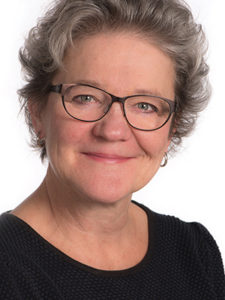
Looming workforce issues in rheumatology are not unique to the United States. Health care systems around the world are looking at various models to address potential gaps in care for patients with rheumatic diseases.
During an ARHP clinical practice session Sunday afternoon, attendees can learn how other countries are handling the increasing demands for rheumatologic care. The session, Sustainable & Accessible Health Care in Rheumatology: International Perspective, will take place from 4:30 – 6:00 pm in W184d.
Leslie Soever, MSc, BScPT, Advanced Clinician Practitioner in Arthritis Care (ACPAC)-trained physiotherapist and Clinical Lecturer in the Department of Physical Therapy at the University of Toronto, Ontario, Canada, will open the session with “Extended Role Practitioners: A Canadian Approach to Improve Access to Arthritis Care.” Soever, who is also Past President of the Arthritis Health Professions Association in Burlington, Ontario, Canada, will review a University of Toronto-based clinical and academic training program that has been developed to give interprofessional team members increased competencies in rheumatology.
The ACPAC program (www.acpacprogram.ca) aims to fill gaps in areas where there are shortages of rheumatologists or where there are long wait times. The program started more than 13 years ago, and its 79 graduates are now practicing in a variety of settings throughout Canada. Soever will profile some of the arthritis/musculoskeletal care models that have been put into place since graduates began entering the workforce.
“We’ve seen multiple ways these highly trained clinicians have been incorporated into rheumatology care and musculoskeletal care,” Soever said. “For example, we have some advance practice clinicians working directly with physicians. We have some telemedicine models. We have some traveling models. Models of care vary and are in place in both rural settings and academic medical centers. I really want to highlight the training program because it is a unique program that’s helping alleviate the strain on our health care system by equipping clinicians with extended competencies.”
As part of the discussion, she’ll share data such as impact on wait times for patients and patient satisfaction with advanced practice providers.
“We also have done some studies comparing the advanced practice clinicians to the physicians in terms of level of agreement on diagnosis, etc., so I’ll share that data as well,” she said.

Next, Annette de Thurah, PhD, MPH, Associate Professor at Aarhus University, Aarhus, Denmark, will give the European viewpoint during her lecture “Integrated Health Care: EULAR Perspective.”
“In Europe, we have two major trends that mirror trends in the United States,” Dr. Thurah said. “First, we’re experiencing a major demographic shift. We have an increasing elderly population, so there’s an increasing burden on the health care system. That’s a challenge.
“Simultaneously, we have a rise in technology. Today, we have a lot of opportunity to do things differently. We need to work smarter to offer the same quality of care despite the increased demands on the system. We need to prepare the workforce and the whole healthcare system for tomorrow.”
EULAR represents members from multiple countries with a variety of systems, Dr. Thurah said, and countries around the world will experience a shortage of rheumatologists. All will need to adjust how they practice.
She will share highlights from a 2009 publication by the European Hospital and HealthCare Federation titled “Health Professionals in Europe: New Roles, New Skills.”
“This publication showed us a model for addressing the increasing demand for health care,” Dr. Thurah said. “The federation laid out the demands we’ll face and discussed what we’ll need to do to meet those demands. There will be a shift of responsibilities from rheumatologists to nurses or from rheumatologists to physician assistants, and so on. There will be a demand for new competencies. People will need to learn things they don’t do today. There will also be new abilities. There will be new rules.”
Dr. Thurah will also share some of the experiences European clinics have had with technology solutions. She’ll discuss the results of a study on a telemedicine solution for monitoring disease activity in rheumatoid arthritis patients.
She cautioned that providers must consider potential barriers when considering technology solutions.
“When we use technology, we also need to talk about health literacy,” she said. “These may not be solutions for everyone. How do we help people become telemedicine users? Some patients may not be able to use or access technology. How do we enable people to become of users of tomorrow’s health care? We may lose some patients if we don’t help them.”
Kori Dewing, MN, RN, ARNP, a rheumatology nurse practitioner at Virginia Mason Medical Center, will also give a lecture titled “Sustainable & Accessible Healthcare: ARHP Perspective.”
